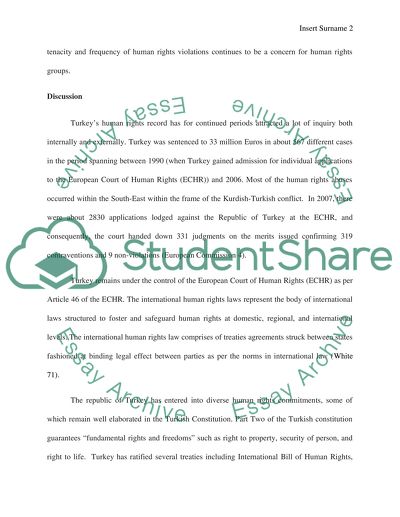Cite this document
(“Human Rights in Turkey Essay Example | Topics and Well Written Essays - 3000 words”, n.d.)
Retrieved from https://studentshare.org/law/1480638-human-rights-in-turkey
Retrieved from https://studentshare.org/law/1480638-human-rights-in-turkey
(Human Rights in Turkey Essay Example | Topics and Well Written Essays - 3000 Words)
https://studentshare.org/law/1480638-human-rights-in-turkey.
https://studentshare.org/law/1480638-human-rights-in-turkey.
“Human Rights in Turkey Essay Example | Topics and Well Written Essays - 3000 Words”, n.d. https://studentshare.org/law/1480638-human-rights-in-turkey.


